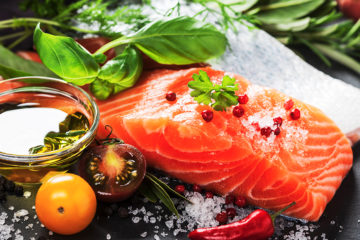Herbal Remedies: An Introduction


Herbal Supplements are Exceedingly Popular
Vast numbers of people swear by herbal supplements to relieve ailments ranging from poor night vision to memory loss to liver problems. Sales of herbal supplements in 2016 reached almost $7.5 billion. According to a 2012 survey by the National Center for Health Statistics (part of the Centers for Disease Control), almost 1 in 5 Americans use herbs and other non-vitamin supplements. Are Herbal Supplements for you?
Herbal Medicine Background
Humans have been using plants for medicinal and nutrition purposes for some 60,000 years, since long before there were doctors or hospitals. Even in our modern age of pharmaceutical innovation, the World Health Organization has estimated that more than 80% of people in developing nations rely on traditional remedies such as herbs, for food and for healing illness and injuries.
Many of the medicines that helped usher in the modern era of health were originally synthesized or derived from plant sources. Among these are:
- Alkaloids - like heroin and morphine - from the opium poppy
- Emitics - vomit-inducing drugs - from the Ipecacuanha plant of Brazil
- Strychnos nux-vomica, the source of the poison Strychnine
- Quinine, once a popular treatment for malaria
- Pomegranate - long a fertility symbol - is claimed by some to benefit the immune system
A great many drugs approved by the Food and Drug Administration (FDA), as many as 50% by some estimates, originate from plants.
Regulations and Standards
The Food and Drug Administration, which governs all substances sold for medical use, does not run clinical trials or safety surveys on herbal remedies, nutritional supplements and tonics. Therefore, manufacturers of herbals must classify them as dietary or nutritional supplements, and they may not claim that their products offer any medical benefits. The nonprofit U.S. Pharmacopeia (USP) is a standards organization (as different from a government regulatory body) that offers protocols for uniform preparation of herbal supplements, and sets standards for such things as:
- Identity - verifying the product what it claims to be
- Potency - making sure it is present in the correct quantity
- Purity - setting safe levels of impurities, contaminants or other unwanted ingredients
- Performance - verifying it dissolves and disintegrates to allow the active ingredient to be absorbed
The Content Of Herbal Supplements
From a pharmaco-chemical standpoint, herbal-based remedies are very complex, because each herb ingredient is made up of numerous compounds. It's very difficult to isolate the active components, and to control the potency. Herbs have the potential to be useful and effective, still you're wise to be prudent and use them responsibly.
Forms of Herbal Supplement
Herbal supplements are sold in a wide variety of forms, including capsules, liquids, powders, chopped or dried plants. They're administered many ways, as well:
- Taken orally as tinctures, powders, capsules or pills
- Added to a warm bath
- Brewed as tea
- In gel, cream or lotion form, applied to the skin
Side Effects
Most herbal remedies don't carry the pages of fine-print warnings that prescription drugs do, in part because they're not as potent, and in part because they're not subject to the more stringent labelling rules imposed by the FDA.
However, don't assume that because herbal remedies are natural that they are harmless as well. Allergic reactions are not out of the question, and long-term overuse can cause new medical problems.
Herbal Interactions - Consult Your Physician and Pharmacist
Some herbs can interact with drugs, other herbs and foods. Many people may be aware that the herbal supplement ginkgo can interfere with the proper action of blood thinners. According to the American Academy of Family Physicians, St. John's Wort is the supplement with the most documented interactions with drugs. Let caution be your guide: be sure and consult your doctor before you start taking a vitamin supplement.
Are Herbal Supplements a Good Idea for Me?
Here are a few points for the prudent on choosing and using herbal supplements:
- Inform yourself - learn about the substances you plan to take, and don't simply follow what a friend or relative suggests
- Look for a clearly visible use-by date, as well as batch ID and contact information for the manufacturer, in case you need them
- Start with the lowest recommended dose, know how soon to expect results, and understand what an adverse reaction might look like
- Buy only quality products, from a reputable retailer



